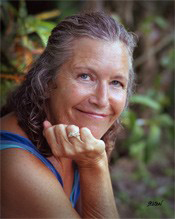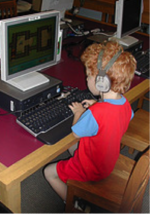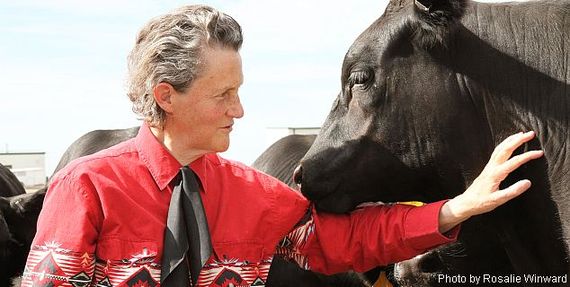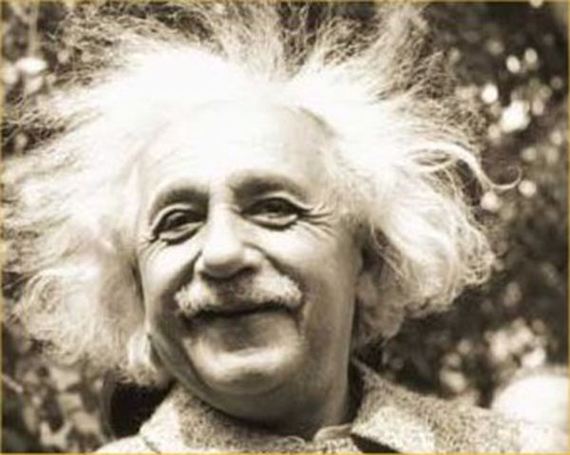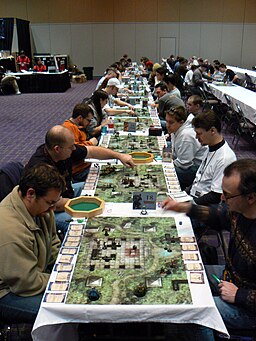[vc_row][vc_column][vc_column_text]“There is a place for Autism in our world, a valid, worthwhile, important place. We need to see the beneficial aspect of the differences and see that these children and adults deserve an equal amount of respect.” – Barbara Sher, Certified Occupational Therapist
Meet Barbara Sher, aka “The Games Lady” and author of 10 books on childhood development, whose professional focus for 14 years was “fixing” children diagnosed with Autism Spectrum Disorder until a recent revelation: maybe it isn’t them that need fixing, it’s us. Maybe it’s society that needs to embrace and appreciate this neurological diversity. Sher also happens to be my aunt, and it was during a hike in the Rocky Mountains last summer that she shared with me her remarkable change in perspective. She told me,
“At first my goal as an occupational therapist was to “fix” them, to increase their social awareness, to integrate their sensory system, to make them more like everyone else. But as the years past and the number of children increased, my awareness also grew. I see the gifts of Autism and how people on the spectrum serve an important role just the way they are; in fact, precisely the way they are.”
What follows are seven ways in which children and adults “on the spectrum” have skills that are uniquely adaptive because they are suited to our changing world, and thus provide an opportunity to improve our society as a whole.
1. Computer Savvy
Although many children love screen time, it is common for the child on the spectrum to be particularly skilled with computers. Therapists and parents discover that “computer time” is often by far the best incentive for these children, and it is well-documented that computer-based instruction is often more effective than teacher-based for children with Autism (e.g., as reviewed in Hetzroni and Tannous 2004 ). Says Sher,
“I think of people whose job is working for long hours on their computers in small cubicles with limited time for social interaction. Many people on the spectrum would love that job! Innovative ideas, analysis computation, data compiling can come out of people willing to spend hours focused on their computer. We need people with these skills and many people on the spectrum naturally have them.”
2. Not People Pleasers
One diagnostic symptom of Autism is a disregard for social cues, something referred to in the scientific literature as lack of interest in “reciprocal social behavior” (e.g.,, Constantino et al. 2000)
Although reading social cues is a skill worth developing, many non-autistic people find themselves overly concerned with the messages they believe they are receiving from others. Sher said,
“As someone who grew up with the conditioning that nothing was more important than being popular and getting people to like you, I envy their disregard for my opinion. Doing their own thing has a higher priority than doing my thing. We could all gain from learning to be a little less concerned about people pleasing and more concerned about zeroing in on what is interesting to our own unique self.”
“I’ve noticed that children diagnosed with Autism are often more skilled at noticing details from a very early age. Children I have worked with in Head Start Pre-school Centers are almost consistently ahead of the curve on their ability to know colors and shapes and to identify letters and numbers. Their social skills are often underactive but not their academic ones.”
Sher has witnessed what Dr. Temple Grandin, professor at Colorado State University and author of The Autistic Brain believes may be a central feature of the autistic mind: a greater-than-average development in one particular area of the brain, in her own case, the visual center. This type of specialization lends itself to the next benefit:
4. Unique Skill Sets
There are a myriad of societal contributions that can be attributed to Autism; one of the most famous is the revolution of the livestock industry by Dr. Grandin. Her unique ability to perceive her environment the way that the animals likely do allowed her to make recommended changes to the handling of animals that have now become industry standards. She considers her Autism a gift, but worries about how children today are held to one standard and may not be allowed to develop their particular strengths but rather fit in a particular box. Says Grandin, “Parents get so worried about the deficits that they don’t build up the strengths, but those skills could turn into a job.”
5. Aspie Pride
The internet has facilitated community development among those with similar interests and experiences, and adults who have the Asperger’s form of Autism are no exception.
They call themselves “Aspies” and there is a growing Aspie Pride Movement (e.g., https://www.facebook.com/ASPIEAutismSpectrumPrideInEverything). Albert Einstein, Wolfgang Amadeus Mozart and Lewis Carroll are thought to have been “Aspies”.
6. Complex Interactions
Although a characteristic of Autism is “impaired communication,” it is increasingly clear that that for at least some individuals, the problem is not communication per se, but rather communication with those who do not share their neurological configuration. In fact, the interactions that they have with each other can be highly complex. The ability to notice, focus on and memorize details means that many excel at multifaceted role-playing and other complex ways of interacting. Sher says,
“I read about some of the computer “games” Aspies play and have no clue what they are talking about. But they do and there are people all over the world who do. Maybe there are people with Autism who don’t socialize like we are used to, but they can have elaborate interactions with like-minded people.”
7. Heightened Sensibilities
Instead of pitying the mom whose child with Autism is having a melt down in the grocery store, Sher suggests that we could instead have an appreciation for their sensitivities. We aren’t noticing the overwhelming aspects of the store the child is reacting to: the bright lights, the product packaging screaming to grab our attention, the overwhelming choices, the smells from the deli, the squeaky wheels of a passing cart, etc. However, these aspects affect us all on some level. Sher explains,
“In no way do I want to lessen the awareness of the challenges of raising a child with sensitivities, I more want to emphasize a larger awareness that their sensitivities bring to our understanding. In a world full of common sensory pollution such as the ear splitting noise of leaf blowers and noxious smell of diesel fumes, we need to be aware of what’s too much before we can change it.”
How We as a Society Must Change
Having any form of Autism can be challenging, both for those individuals and for the people in their lives, however many of these difficulties have to do with or are exacerbated by the lack of understanding by the larger culture. Just as parents used to lament discovering that their child is gay because their lives would be more difficult, there is an increasing awareness that there is little to nothing that is implicitly difficult about being gay- what made it difficult was societal rejection and lack of appropriate support. In fact, this very progression can also be seen in our cultural relationship with left-handed people, who were shunned or even killed; true, they need some accommodations, but their disproportionate contribution to politics (e.g., our current president), arts and culture cannot be denied, even if we don’t always understand the relationship between what makes them different and what makes them valuable to society.
Sher is proposing that this is no less true for people diagnosed with Autism, and that there are significant contributions by these individuals that are because of, rather than in spite of, their “condition”. Diversity, even neurological diversity, is not something to be simply tolerated but rather appreciated. Sher now believes that her work as a professional is to help children on the spectrum strengthen weaker areas, but also to accommodate differences so that their gifts have an opportunity to be realized.
“As a therapist, I have learned that if I want these smart children to be social with their classmates, the best way is to encourage playfulness. Engaging these lovely children in play show them that being with others can be wonderful too. Just like understanding the significant gifts of Autism in today’s world can be wonderful for us all.”
Barbara Sher’s latest books, Early Intervention Games: Fun, Joyful Ways to Develop Social and Motor Skills in Children with Autism Spectrum or Sensory Processing Disorders and The Whole Spectrum of Social, Motor and Sensory Games emphasize playful activities to do with siblings at home and in inclusive classroom using recycled materials. For more details, check out http://www.gameslady.com/.[/vc_column_text][/vc_column][/vc_row]


